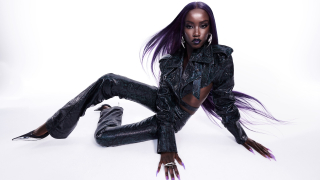#BringBackOurGirls and #WhereAreOurGirls are the hashtags that have emerged in the wake of Boko Haram’s brazen midnight kidnapping of more than 230 girls asleep in their boarding school dorms. #WhoIsInCharge seems more apt.
Almost two weeks since news broke of the April 14th kidnapping of final year students at the Government Girls Secondary School in the northeastern town of Chibok, the exact number of girls abducted remains a mystery. Nigerian and foreign news sources have estimated anywhere from 129 to 237 missing, even as the Nigerian government and military have released conflicting information about recovery efforts.
RELATED: NIGERIA, AFRICA'S LARGEST ECONOMY
Shortly after the girls’ seizure, Director of Defense Information Chris Olukolade said all but eight of them had been rescued from their captors. The Human Rights Agenda Network, a coalition of over 150 human rights organizations, subsequently asked for Olukolade’s resignation citing his dissemination of “misinformation.” 100 to 200-plus girls reportedly remain missing.
In the absence of clear leadership, parents of the captive girls have opted to search the Sambisa Forest where the Boko Haram are believed to have set up camps. One report claims those who did “saw no trace of military presence in the area; no sign of any search and rescue operation.”
Meanwhile, a coalition of the wives of the country’s northern region governors has “charged the government to create more jobs that would keep the youths creatively and positively [engaged]…” So, they’re charging their husbands…who are supposed to be in charge?
Citing the string of Boko Haram attacks in the last four years, including the most recent bombing of a lorry station in Abuja, Nigerian writer Chika Unigwe blamed government ineptitude for creating a climate where lawlessness and terror can thrive.
In a piece for The Guardian, Unigwe wrote: “It has become painfully obvious that the Nigerian government can no longer guarantee the safety of its citizens, least of all its students. We know it. Boko Haram knows it. Until there is a real and concerted effort to fight the group, there is no hope of its power ever waning.”
She added: “In a country where citizens are used to providing for themselves what the government should provide (electricity and water, for example), there is little hope that children can be kept safe in schools.”
Perhaps most tragic, the girls at the center of this leadership dysfunction were unable to distinguish between the military and the terrorists.
“We thought they were soldiers,” one of the abducted girls told the BBC of the incident in which gunmen entered her dorm and directed her and her mates to board vehicles. Only after they set off on the road did the girl “[realize] they didn’t look innocent.” The gunmen reportedly overpowered two school security guards.
She and a few others were able to escape by jumping from the vehicle, but the bulk of her mates were not as fortunate. A reported target of the Boko Haram, girls captured in past terror attacks have been used for sexual and domestic service.
In an attempt to regain control of the misinformation and confusion, the governor of Borno State, which presides over Chibok, said they would limit information to the public. “We appreciate the fact that the public have a right to know,” Governor Shettima’s spokesman told Nigeria’s Daily Times, but “the right of these ladies to stay alive overrides the right of the public to know.”
The spokesman, Isa Gusau, added “So much is being done, but so much cannot be said,” to protect the safety of the girls, uncluding a deployment of troops by President Goodluck Johnathan.
What Gusau could say is that the governor visited with the families of the kidnapped, and has set up a committee to reconcile the conflicting numbers of missing girls made up of the Commission for Education, Director of Statistics at the Ministry of the Education, two parents and one student.
Earlier this month, Nigeria was named the largest economy on the continent.
Nana Ekua Brew-Hammond is the author of Powder Necklace. Named among the 39 most promising African writers under 39, her work will be featured in the forthcoming anthology Africa39.













